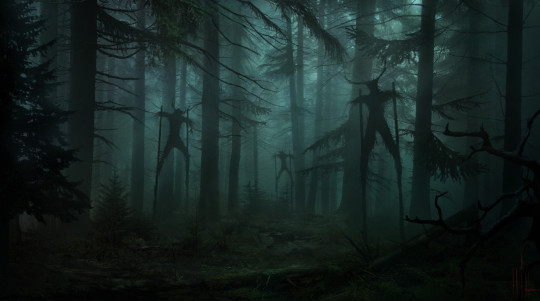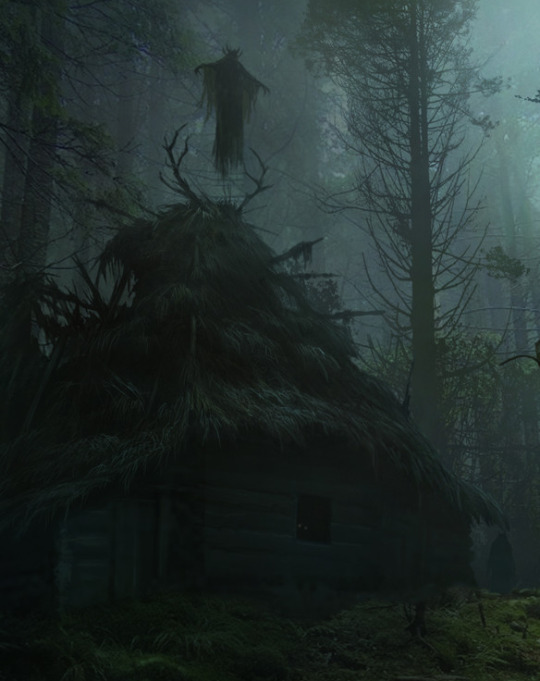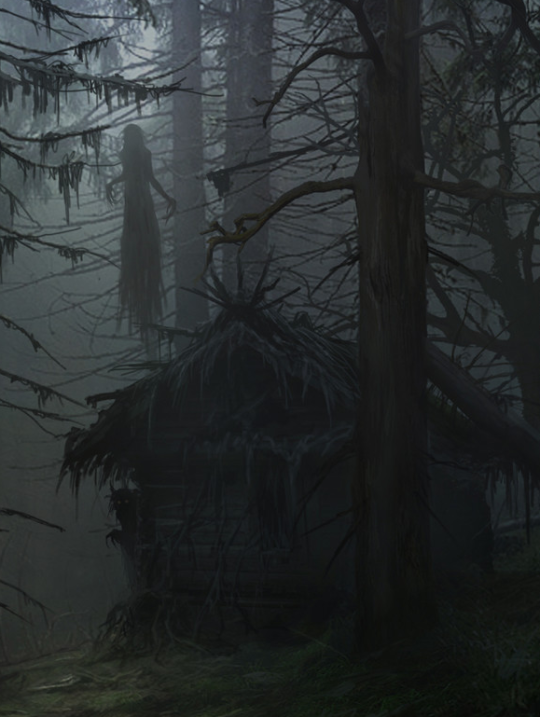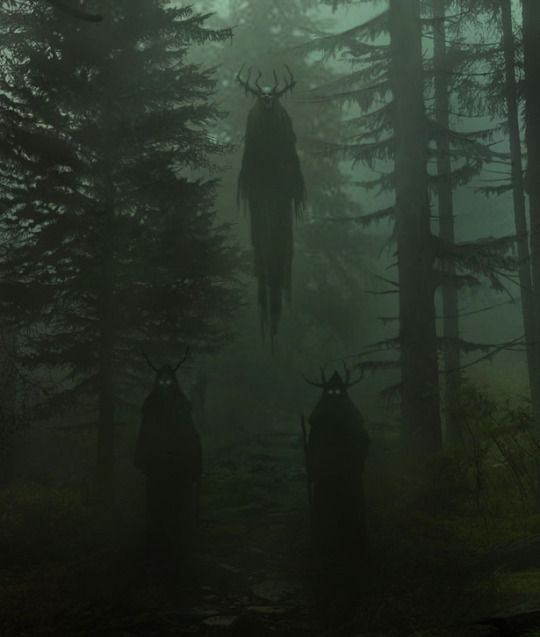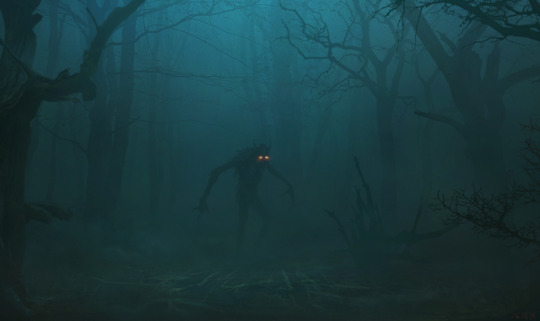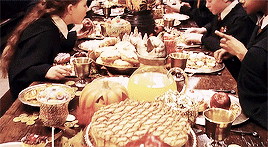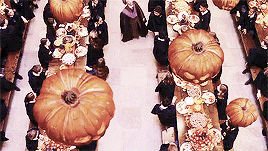Note
Hi. I want to sort of read about cities and cyborg cities and monstrous cities. I was wondering if you would have any recommendations? Theory, nonfic, fic anything. I'd really appreciate it. Thanks in anticipation.
Hello. Thank you for the question, and why not? This is not a comprehensive list by any means (no extensive theory at all or other forms of art, etc). I’m sure there are far better recommendations one could ferret out, but never say no to excellent literature:-
Fiction.
1. Gormenghast, Mervyn Peake: a world of gothic grotesque, strange and gloomy and ornate and slumping into decadent decay, choked by ritual and custom.
2. Invisible Cities, Italo Calvino: This book is a marvel, each chapter dedicated to a different city in the form of conversations between Marco Polo and Kublai Khan. His cities shimmer and shift and beguile you; they aren’t old-world noirs of vice and squalor, but cities of ideas and questions, dense with meaning, compact in every sentence.
3. Anything by China Miéville, including Un Lun Dun, The Scar, but especially Perdido Street Station: Perdido isn’t his best novel, but the prose crackles and it’s fantastic world-building: a dark, dingy, clanking neo-Victorian London of grimy decadence, occult science, body horror, oppression and corruption.
4. Neuromancer, William Gibson: Messy, energetic & innovative—the cornerstone of 1980s cyberpunk-lit: drugs, hackers, sliding realities, information overload. (Also coined the term “cyberspace”).
5. Hunger, Elise Blackwell: not a different world, exactly, but the past; the starvation of Leningrad—how humans salvage themselves, how a city dies.
6. From Hell, Alan Moore: A graphic novel set in victorian London, From Hell is the city at its darkest and most cruel - a place of shadows, the centre of an empire built on blood and bones, its masters lurking around every corner; a flicker on the periphery of your vision, the chill down your neck.
7. The Matthew Swift Novels, Stray Souls, Kate Griffin: These novels aren’t just about London, they want to be London, so viscerally soaked and stinking with the place that you know how Matthew feels to have it in his bloodstream. Griffin’s playing with some of my favourite tropes: psycho-geography and city as biological organism.
8. Flow My Tears, The Policeman Said, The Man in the High Castle, and Do Androids Dream of Electric Sheep? Philip K. Dick. PKD never moves far from the nightmare zone; his filthy, hallucinatory dystopias are full of technological bric-a-brac, hostile AIs, and humans drowning in the system.
9. Neverwhere, Neil Gaiman: A novel about a London below London, a London between-the-cracks riddled with immortality and myth and magic. Gaiman has a knack for the uncanny, for person-shaped monsters with an insidious aura of wrongness.
10. The Night Watch, Sergei Lukyanenko: A fascinating post-Soviet novel set in a Moscow that is alive and ravenous; where worlds exist behind worlds; where dark and light watch each other and the twilight is a city space where the lines between the good and not-so-good blur and shift, all encompassed by a landscape that can be deadly. Unnerving.
Others: Of course, writers like Charles Dickens and Daniel Defoe and Edgar Allen Poe and Jules Verne and Thomas de Quincey and Emile Zola and Charles Baudelaire have all explored the cities they inhabited as breathing, living things, bleak and bright and singed with flame.
Theory, etc.
I’d look at these books as good start - Psychogeography, Merlin Coverley. Restless Cities, Matthew Beaumont. This Urban Design Course on Race & Justice, Metabolic Urbanization, Erik Swyngedouw, The Arcades Project, Walter Benjamin. London Orbital, Iain Sinclair. Formulary for a New Urbanism, Ivan ChtCheglov, Imaginary Cities, Darran Anderson
Hope this was helpful. Happy reading.
1K notes
·
View notes
Text
To be a Local Witch
Throughout history and our legends, Witches and Wizards were the crazy men and women that lived on the outskirts of the village. Their craft was wild and strange to those that lived in the village, but, nonetheless, people would seek after their wisdom of the land, the plants, the local spirits, and for wisdom or guidance in their path. These men and women, often bachelors, would know the ins and outs of the region and often went walking alone.
Today, our villages are less rustic and more like local towns, and suburbs. But one can still be a Local Witch, and develop special connections with the land you call home.
Become a Local Witch:
Learn Local Lore Folktales, legends, and even tall tales develop the culture of a town or area. Learn these. Retell them over summer campfires, and over drinks with friends. People will start to LOVE your stories.
Start Frequenting locally owned shops and stores Develop connections and relationships with the owners and those that work there every day. Learn their names, and introduce yourself after visiting more often. Supporting locally owned shops helps small business owners and provides nourishment to your community. This is putting down roots, and develops your connection with the people that shape your town.
Find a Local Bookstore This is an extension of 1 and 2. Locally owned bookstores always have a Local Writers, Local Plants, and Local History sections. Ask inside where these sections are, and start devouring these books. Not only will you be supporting a local shop, but you have a direct source of helpful information. Oftentimes, employees and owners also know a lot of Lore. Talk to them about what you’re interested in learning. They probably have some hidden gems of information.
Learn about your Indigenous Plants Start researching and learning about the flora that grows locally, learn their lore, their uses, and magical or folklore associations. If Natives from your area used these plants, find out how. Learn where these plants grow and research local foraging. If you’ve never foraged, see if you can find a local group that can serve as helpful guides to stay safe. Never ingest anything unless you are SURE.
Start a local Plant Grimoire Keep dried presses of flowers and plants in it, draw and diagram to help you remember what they look like.
Learn about the indigenous animals Research their folklore and mythology. Start finding out what they eat, and what their habitats are. (Safely) Do your part to help foster their growth and health. This could be making insect houses to help local endangered pollinators, or leaving out special birdseed for endangered bird species in the area. (Safely) Start interacting with the non-aggressive species and leave them treats. This is great for birds, deer, rabbits, moles, chipmunks, hedgehogs, etc
Join local Conservation Projects Getting directly involved in wildlife conservation strengthens our spiritual and natural ties to the land we call our home. Taking personal responsibility and interest in it’s stewardship is honoring the spirits of the land, and the Gods.
Use Google Maps while exploring parks, or protected open spaces to drop pins and places where you find animal habitats or useful plants for foraging.
That’s all for now. More will come later I’m sure. Now go be the best local Witch or Druid you can be!
16K notes
·
View notes
Text
“There is no intensity of love or feeling that does not involve the risk of crippling hurt. It is a duty to take this risk, to love and feel without defense or reserve.”
— William S. Burroughs (via quotemadness)
4K notes
·
View notes
Photo

“Swords At The Gate”
Swords At The Gate is a tarot spread for when you’re having problems in life and you need some extra guidance to move past them, to move past the guards that are keeping you from going into the castle. This is a spread that can either be used on yourself or in readings for other people.
this is card is at the top of everything else, it stands front and center as the strong willed guard who will not let you past no matter how much you beg and plead. this card represents your problem, the thing that is keeping you from your goal.
the card that lays behind the first card, a few steps back as the weaker willed guard who sees your pleading and may let you through with the right words. this card represents what you may do to move past your problem and move onto your goal
the card that lays behind the first two, protected much like a castle would be. This card represents what lies ahead of you, your goal and what it may seem like once you get close enough to notice the small cracks in the walls that had stood tall in the distance when you had first reached the gate.
379 notes
·
View notes
Text
Psychology of Slytherin Traits
Slytherins find comfort in versatility, believing the only defining constant is to change. Slytherins remain feeling genuine even as they tailor their projected image according to the present audience. This unapologetic maneuverability adds to the Slytherin reputation for manipulation and deceit, but from the Slytherin’s perspective, taking advantage of those opportunities is neither dishonest nor tricky but resourceful. This swift adaptability certainly lends to manipulation and power-seeking, but a well-meaning Slytherin can just as easily focus their efforts on maintaining friendships, making people happy, or encouraging positive social change.
Slytherins are masters of self-preservation: geared for surviving at all costs while ambitiously aiming to thrive. Slytherins tend to be people who consistently experienced unpredictability in their environment and found that having only one “right” set way of doing things couldn’t help them cope. This makes Slytherins particularly good at, for example, surviving abuse. When someone feels unsafe, they are much more likely to make decisions based on their own survival, even if that means sacrificing their highest ideals. If upsetting someone means being harmed, there is strong motivation to prevent that outcome by any means necessary. Not every Slytherin is an abuse survivor, and neither do all survivors develop Slytherin traits; however, some do, and perhaps many do.
Slytherins tend to model the desirable traits of other houses. A Slytherin modeling Ravenclaw, for instance, may carefully consider multiple viewpoints before entering debate on a subject. If modeling Hufflepuff, a Slytherin may adopt a warm, happy exterior and appear extremely sociable. Slytherins may act boldly outspoken if they’ve viewed this behavior as beneficial for Gryffindors. However, these tactics are born of appreciative respect rather than an innate feeling it’s the one-and-only right way to do things.
Some Slytherins always remain “neutral” and are notably unique, often abrasively charismatic personalities. Sometimes, Slytherins will gradually settle into their “neutral state” around someone after building mutual trust. It can feel rewarding when a Slytherin lets down their walls and shows personality aspects not many people get to see. Other times, it takes people by nasty surprise (especially if they were previously unaware of the Slytherin’s layers) and might feel duped and betrayed in retrospect. Slytherins don’t see flexibility as being disingenuous. Slytherins believe you can be true to yourself without being consistent in your approach; you can have multiple layers without the surface being fake or “less you”. Superfluous characteristics are just as valid, if maybe not as intimate, as the facets you have deeper down. Under a lot of pressure and introspection, Slytherins can be prone to existential crisis for this very reason. Yet, on the other hand, Slytherins are able to radically transform their habits, beliefs, or entire identity in the pursuit of happiness.
“Perhaps in Slytherin you’ll make your real friends,” the Sorting Hat says in Harry’s first year. At first glance, Slytherins look potentially treacherous. If you’re not one of their few most important people, they really aren’t particularly trustworthy. Predictable reliability doesn’t have inherent worth for Slytherins as it does for Hufflepuffs: loyalty is less deserved and more earned. Slytherins passionately believe in the importance of taking care of their own, and tend to have a possessive and quite binary view of either “mine” or “not mine”. This may appear as ruthlessness, although Slytherin’s core is not inherently cut-throat. While known for being “selfishly” self-nurturing, their compulsion to put aside very important personal desires for the sake of people they love always feels more righteous and pure to a Slytherin than any common “higher ethical ideals” that inspire moral posturing. Hell hath no fury like a Slytherin betrayed. Loyalty is precious and terrible because it makes you vulnerable, and so it’s given sparingly and deeply.
@sortinghatchats Hey, I’ve combined my favorite bits from your Slytherin posts! THANK YOU for putting this into words. Much greater appreciation now for Harry Potter being initially sorted into Slytherin and arguing against it for the sake of appearances and wanting a safer environment, which is such a Slytherin thing to do, isn’t it? (Original posts: #1 and #2 and #3)
1K notes
·
View notes
Photo
Kill ‘em with kindness.

How one man inspired 200 KKK members to leave the organization - WTF fun facts
2K notes
·
View notes
Text
31 Days of Ouija Blogs: Day 7- Basic Ouija Board Rules
Here are a few quick questions to ask yourself before you play the Ouija board.
-Do you want to play because it sounds fun?
-Do you want to talk to random spirits in your area?
-Are you bored on a Saturday night with your friends and want to explore the paranormal?
-Do you want to ask some fun, hypothetical questions and see what you get?
If you answered yes to these questions, congratulations, you are going to have a great time playing the Ouija board. Now on to the next set.
-Are you playing so you can contact a deceased loved one or celebrity?
-Are you attempting to contact a demon or evil entity?
-Are you playing while deeply afraid of what could happen?
-Do you have certain trigger words that could cause you harm?
-Are you under the influence of a mind altering substance?
If so, you should probably steer clear from Ouija boards, as you are probably playing with the wrong intentions.
But if you are going to play because you want to have a fun time playing a board game, great! One of the most important rules is to not take it so seriously. It’s a game, and it has always been a game. If you treat it as something serious, like a sacred divination tool or a demon portal, you’re not going to get desirable results. You’ll only contact some troll spirit who will lie up and down and either say everything you want to hear or do their best to terrify you. But if you treat it like a game, and go in with good intentions to have fun, then spirits will have fun with you. Next important rule, you’ll get whatever energy you put into the board. Start positively, you’ll get positive spirits. Play it fearfully, or with negative intentions, you’ll get negative spirits.
To start, a lot of people recommend setting up protection for yourself, which is fine. Protection is not always necessary, especially if you don’t feel you need it. If you do want to, find something that makes you feel safe. It could be your favorite book, or blanket, or article of clothing, or the Hamilton cast recording; if it makes you feel comfortable and relaxed, keep it with you. As long as you feel safe, you’ll be safe. The next is, before you start to play, to announce out loud that you are going to play to have fun, and you will not welcome any spirits who want to be mean, who maliciously lie, or any spirits pretending to be something they are not, such as a demon or a deceased family member. Also state that, if anything like does try to come through, you’ll end the game automatically and cut off any energy they had hoped to gain from you.
So now you’re ready to begin. A lot of people want to warm up the board by moving the planchette, but that’s really unnecessary. I’ll have a post about starting a session later in the month, so for now I’ll just say, start it however you want. You could recite some little chant like in the movie, or say something like, “Is anyone around who wants to speak?” or even “New board who dis?” Say whatever you want.
If you’re lucky enough to get a reply, go ahead and ask some questions. Remember to not ask questions you don’t want to know the answer to (like when you’re going to die, or things like that) and please don’t be rude to the spirit. You’ve invited someone to play a game with you, and if you’ve done so taunt them, they could want revenge. It’s also best to not ask them questions they may not want to answer, such as how they died. If you want to know about a question like that, ask them permission first.
But say the spirit is rude right off the bat. Maybe they start spelling out swear words or say something like they want to kill you. Then you need to put them in their place. Remember that you are the one in charge of the game, and you are granting your energy to this spirit so they can move the planchette. Without you, they are nothing, and they know it. So if they act up, shut down that behavior right away. Tell them that you will kick them off the board and not allow them into your home or life. Tell them you know you’re more powerful than them, and threaten to end the game. Chances are they’ll apologize but if they don’t, end the game. Don’t feed the trolls.
When you’re finished, it’s very important to say goodbye. It’s not because saying it is some magic spell or anything. It’s just politeness. Ending the game without saying goodbye is like hanging up the phone on someone without saying goodbye. If you’re in a situation where you had to end abruptly, usually the spirit would understand why you didn’t say goodbye and leave you alone. Otherwise, spirits could be offended that you just stopped playing with them and they could be upset by that, and you could wind up with a haunting.
Tomorrow’s blog post will be about playing alone, so I’ll go more into detail then, but let me just state that I do recommend playing with at least one other person. More people means more energy, and you’ll be more likely to get better results while you play. I’ll also talk later about what happens when it spells out random words, when it doesn’t spell out anything at all, and Ideomotor movement.
So to go over the basic rules.
1. Don’t take it seriously
2. You get whatever energy you give it, so stay positive
3. Protect yourself if you feel you need to
4. Stay in control of the game
5. Don’t ask questions you don’t want to know the answers to
6. Don’t feed the trolls
7. Always say goodbye
(Updated with lots of links!)
280 notes
·
View notes
